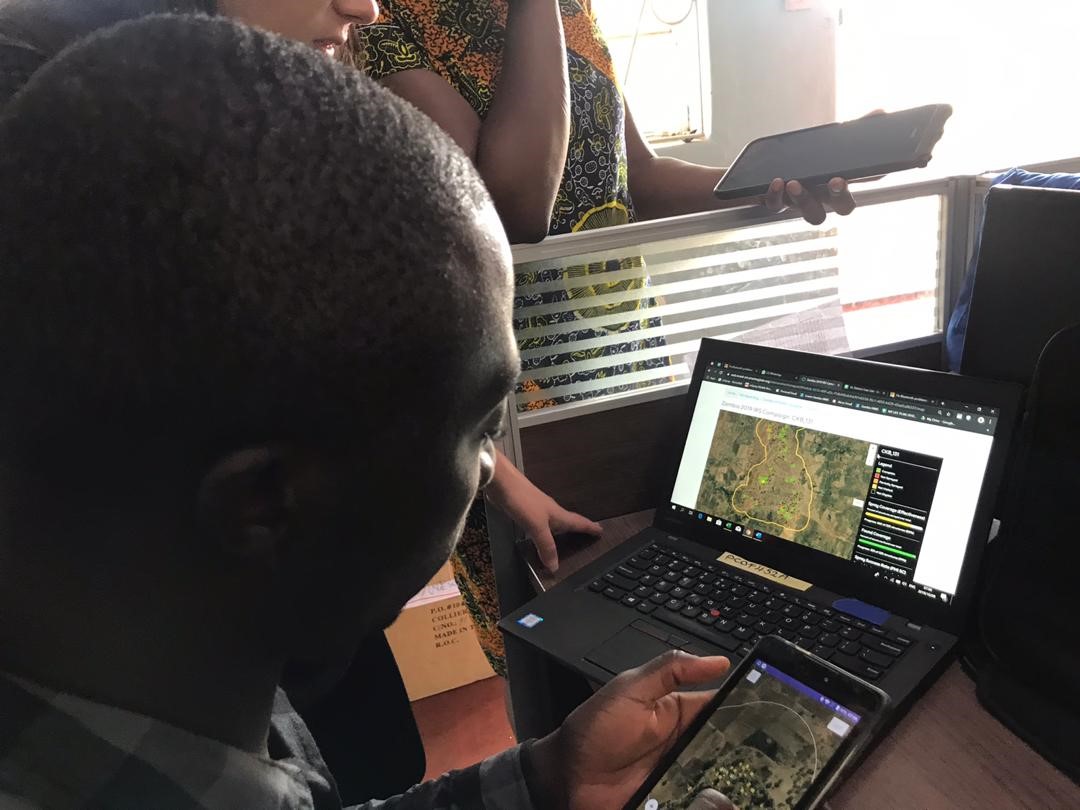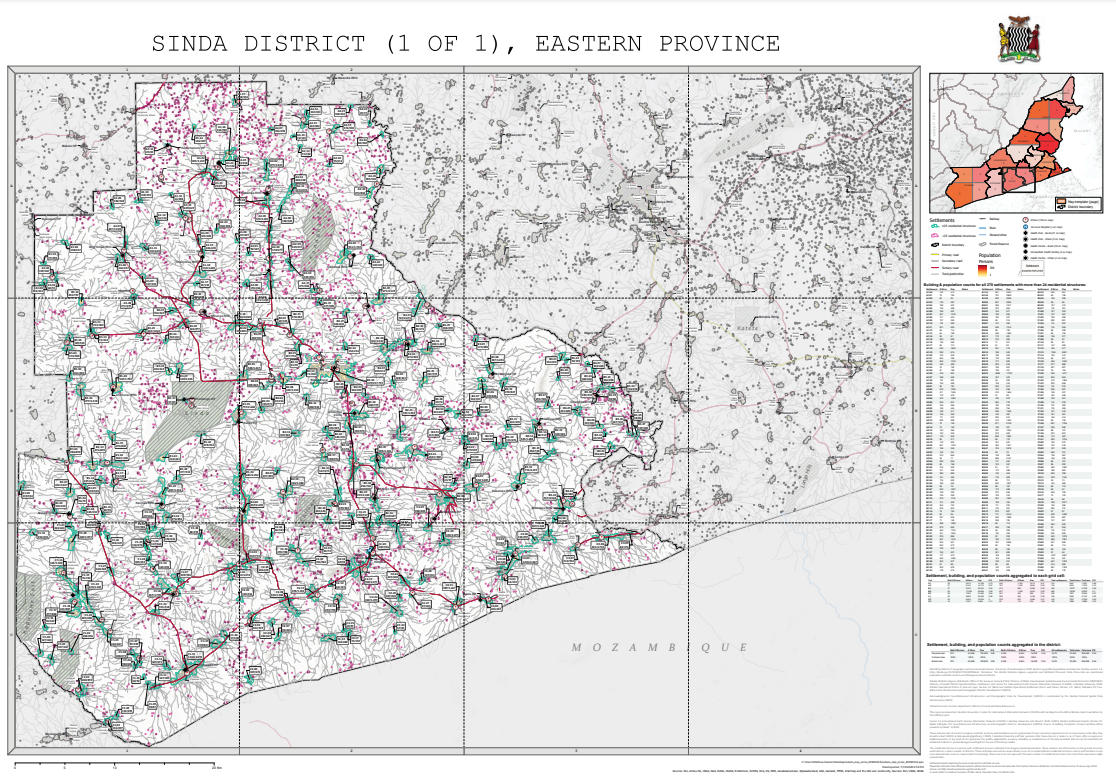The U.S. President’s Malaria Initiative (PMI) VectorLink Zambia Project has been named a winner in the USAID 2022 Digital Development Awards, which recognizes the use of technology to promote inclusive growth, foster resilient democratic societies, and empower communities around the world, including the most vulnerable and marginalized. PMI VectorLink Zambia, implemented by Abt Associates, was recognized for deploying a suite of digital tools that supports map-based data collection, monitoring, and capacity building to improve malaria control programs.
In 2020, malaria killed more than 600,000 people globally, with the disease burden exacerbated by shocks such as emerging disease threats like COVID-19, conflict, and climate change. Vector control programs such as distribution of insecticide-treated nets (ITNs) and indoor residual spraying (IRS) are some of the best ways of combating malaria, but the effectiveness of these campaigns relies upon real-time monitoring and evaluation data at community levels. To address this need, the PMI VectorLink Zambia Project mobilizes the digital tools necessary for Zambia to have quality, timely, secure, and accessible health information and is working with the Zambian government to apply them.
PMI VectorLink Zambia, in partnership with Akros, has developed a suite of digital tools, including the use of satellite imagery, digital micro planning maps, and a mobile application (Reveal), to guide and track the delivery of indoor residual spraying at the household level to ensure no communities or structures are missed. The project has supported the Zambian National Malaria Elimination Programme (NMEP) and stakeholder workforce to use and apply the geospatial data for decision-making and to build a culture around data-use and technology. Additionally, PMI VectorLink Zambia is supporting the Zambian Ministry of Health to integrate project files into their routine data systems for expanded, long-term use of the datasets.
PMI VectorLink Chief of Party Nduka Iwuchukwu notes that having ready access to accurate, geographically distributed population and structure counts is essential to successfully plan and deploy malaria control interventions.
“The digital micro-planning and mapping tools helped the NMEP in 2021 to maximize the impact and coverage of its vector control strategy by delineating which communities would receive nets and which would be sprayed, based on their epidemiologic and operational profiles,” said VectorLink Zambia Chief of Party Nduka Iwuchukwu. “Incorporating the latest population and satellite data at a granular, sub-district level enhanced the planning exercise, and the continued use of the maps moving forward will benefit not only the country’s malaria elimination program, but other health programming across Zambia.”

PMI VectorLink Zambia is part of the global PMI VectorLink Project, which works across 25 countries, supporting national governments to plan and implement proven, life-saving vector control programs, including IRS and the distribution of ITNs, with the overall goal of reducing the burden of malaria. The project uses a variety of rigorous data capture, data management, and data analytics tools across its portfolio, and country teams work side-by-side with their respective National Malaria Control Programs (NMCPs). Through the project-developed VectorLink Collect, a DHIS2-based database system, VectorLink manages a tremendous volume of data, and makes it accessible at all levels to internal and external stakeholders including NMCPs, USAID missions, in-country health teams and research partners, and PMI and USAID clients in Washington.
__
USAID’s Innovation, Technology, and Research Hub received nearly 200 applications from around the world for this year’s awards. Each project was judged on its ability to support the digital ecosystem or digital technology development as outlined in USAID’s Digital Strategy. The other winners of this year’s Digis include the USAID/Colombia Rural Finance Initiative, USAID/RDMA Digital Asia Accelerator, USAID/Georgia Economic Security Program, and USAID/Nepal Building Hope Along the Karnali River Basin (BHAKARI) Program.
Go to https://www.usaid.gov/digital-development/digis/ to learn more about the 2022 Digital Development Awards winners.


